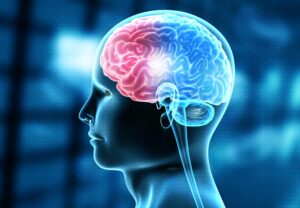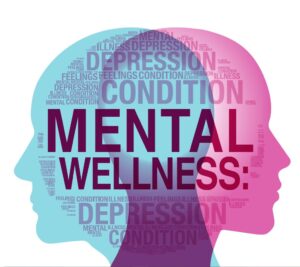
Types of Depression

What is depression?
Depression is distinct from ordinary sadness. Signs of this disease include loss of motivation in life, interior void, apathy, anxiety, fatigue, and hopelessness. Symptoms lasting longer than two weeks may mean depression. People who suffer from depression experience a major change in social behavior, often through avoiding contact with friends, keeping away from work, or disengaging from family or relationships. One in seven people may suffer from depression at least once in their lifetime. Women are affected twice as often as men.
A mixture of factors commonly causes depression. Crisis, trauma, distress, or some disease could trigger it. Psychosocial and psychological distress generally go together with genetic or organic causes, often one enhancing the other. Among other issues, individuals with depression experience metabolic disequilibrium in the brain where levels of serotonin, noradrenaline, and BDNF are out-of-balance. Therefore, signals between neurons are no longer appropriately transmitted, affecting mood and state of feelings. Inherited factors also influence the chance of developing depression. For example, children from depressive parents are at three times higher risk of suffering depression themselves than children from healthy parents.
Different Symptoms
It is normal to feel depressed occasionally, but if you are mostly sad and it affects your day-to-day life, you could be experiencing clinical depression. It is a condition you can treat with TMS, speaking to a therapist, and adjusting your lifestyle.
No matter what the cause is, you should let your doctor know how you feel as a first step. Then, they may refer you to a mental health specialist to help figure out the type of depression you have. It is essential to this diagnosis in order to decide which is the proper treatment for you.
There are several different types of depression. Incidents in one’s life may cause some, and chemical shifts in the brain may cause others.
Depression is a mental health condition that shapes up in several ways and reveals itself in many different symptoms.
Types of depression
Major Depression
It is possible hearing your physician calling this “major depressive disorder.” If you feel depressed mostly at all times for almost all week, you may have this type.
Some other symptoms you might have are:
- Loss of interest or joy in some activities
- Loss of weight or weight increase
- Difficulty falling asleep or feeling drowsy throughout the day
- Feeling uneasy and jumpy, or very slow and sluggish physically or emotionally
- Being fatigued and lacking energy
- Feeling useless or guilty
- Problems with concentration or decision making
- Suicidal thought
Major depression appears different in each individual. Depending on how you feel when you suffer from depression, it could be:
- Anxious distress. You are feeling uptight and uneasy almost every day. You have problems concentrating, worrying that something awful might happen, and you could lose control of yourself.
- Melancholy. You are feeling unfortunate and losing interest in the things you used to like. You feel down even when good things occur.
If you have melancholic depression, symptoms might worsen early when your day starts, when waking up. Think about having somebody to help you with your first tasks of the day.
- You feel uneasy most of the time.
Some other options your physician may suggest when therapy and medication are not working are:
Transcranial magnetic stimulation (TMS)
Therapy for depression
Current research has shown that our combination treatment of psychotherapy and TMS has successful outcomes in 78 percent of patients. Making this an alternative for patients who do not respond adequately to antidepressants and suitable for all depressive patients. Besides, this method has few side effects and is an excellent substitute for medication.
Neurocare Centers of America clinics combine traditional psychotherapy with transcranial magnetic stimulation (TMS), restoring network connectivity in the brain. First, a pulsed magnetic force is generated in the patient’s forehead area with the help of a magnetic coil. These pulses then stimulate subjacent brain regions; this regularizes the communication between particular brain regions involved in depression.
Latest Article


Can Stress Cause Depression?

Why are Some People on Antidepressants Still Depressed?

What does TMS do to Your Brain?

How to Support a Family Member with Depression?

